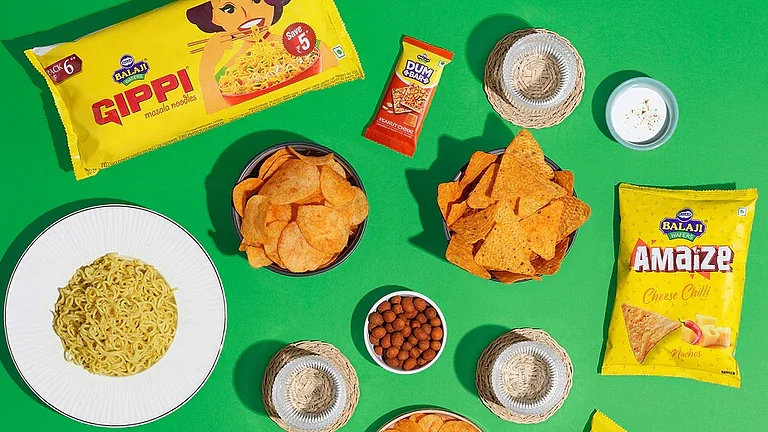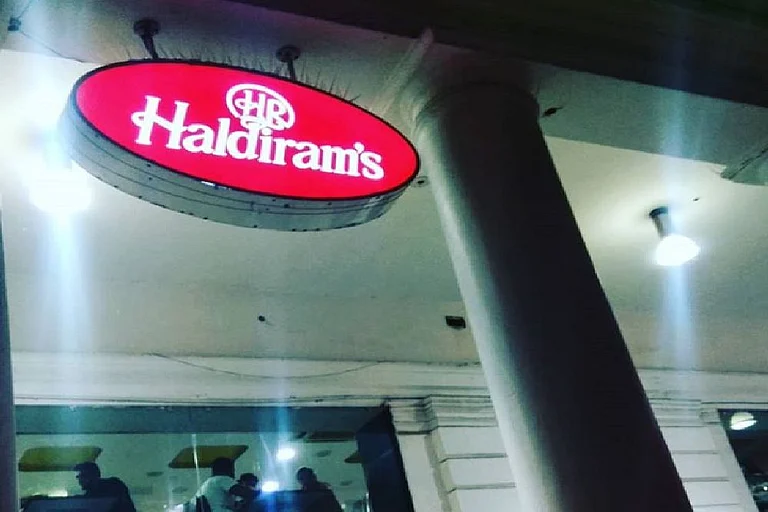Haldiram Snacks Foods, the FMCG company behind India's popular bhujia brand, has been garnering much attention after achieving a $10 billion market valuation last week. The Indian ethnic snacks maker reportedly agreed to sell 10% of its stake to Singapore's sovereign fund Temasek for $1 billion on March 11.
The deal is seen as a step towards Haldiram's much-awaited Initial Public Offering (IPO) after years of restructuring efforts by its promoters, the Agarwal family. The Temasek deal was the result of a year-long negotiation by the promoters with private equity giants like Blackstone and Bain Capital. However, earlier talks fell through as they failed to match the company's valuations. So the question is, how did Temasek agree to buy a stake at a $10 billion valuation?
Haldiram Snacks Foods traces its origin back to 1937 in Bikaner, Rajasthan. Founded by Ganga Bishan Agarwal as a humble ethnic store, it has now expanded to over 100 countries as a ready-to-eat packaged food brand. The company sells more than 400 varieties of namkeen, confectionery, and other packaged products.
Haldiram Snacks Foods has also diversified into sub-brands such as Minute Khana, Cup Shup, and Cookie Heaven and has forayed into chocolate products recently. It has also acquired smaller brands like Babaji Namkeen, Akash Namkeen, and Atop Foods.
Haldiram Snacks Foods Pvt Ltd, which leads the Haldiram brand, only came into existence in 2023. The eight-decade-old company has gone through several separations as it expanded. Ganga Bishan Agarwal's descendants took the family business into three new territories from Bikaner. By the end of the 20th century, there were four units: the Delhi unit was run by Manoharlal & Madhusudan Agarwal, the Nagpur unit was run by Shiv Kishan Agarwal, and the Kolkata unit was led by Rameshwarlal's son, Prabhu Agarwal.
Meanwhile, back in Bikaner, Ganga Bishan Agarwal's grandson Shiv Ratan Agarwal split away from the brand and started Bikaji, which is now listed on the stock exchange.
The other two entities went to court over the brand name Haldiram, and in 2010, the Kolkata unit was barred from using it. They now operate as Haldiram Bhujiawala.
The Delhi unit, Haldiram Snacks Private Limited (HSPL), and the Nagpur unit, Haldiram Foods International Private Limited (HFIPL), merged in 2023 to form Haldiram Snacks Foods Pvt Ltd. Reports indicate that Haldiram's promoters started exploring IPO options after Bikaji Foods debuted on the BSE.
Haldiram's Investment Plan
According to reports, over the years, the Agarwal family has been in talks with several investment firms like General Atlantic, Bain Capital, Capital International, TA Associates, and Everstone for a stake sale. Even Tata Consumer Products made an offer to buy a majority stake in the firm. However, none of it materialised.
After selling a 10% stake to Temasek, Haldiram Snacks Foods now plans to sell an additional 5% stake to another investor for $500 million. They are in talks with Blackstone and Alphawave, reports Mint.
It further notes that the company is likely to list in the next 24-36 months, to help investors monetise the high-stake deal.
What Investors See in the Indian Snacks Market
According to reports, Haldiram Snacks Foods has a revenue of around Rs 14,000 crore in FY24 and an EBITDA margin of around 20-21%. It has seen a compounded annual growth rate (CAGR) of 16-17% and holds a market share of more than 40% of the snacks and savoury market in India.
The company's top competitors include Conagra Brands, Balaji Wafers, Bikanervala Foods, ITC, Parle Products, PepsiCo, Prataap Snacks, TTK Foods (TTK Healthcare), and Urban Platter, among others.
According to market research agency IMARC, India's snack market size reached Rs 46,571.3 crore in 2024 and is expected to grow to Rs 1,01,811.2 crore by 2033, with a CAGR of 8.63% during 2025-2033.
"Increasing urbanisation, along with rising disposable incomes and changing lifestyles, are driving the growth of the market," the report said.
Data from Grant Thornton Bharat's April 2024 report shows that India's consumer market saw 102 mergers and acquisition deals in Q1 of 2024. The sector's M&A values surged 196% to $925 million despite lower volumes, while PE values declined 66% to $823 million despite higher volumes of 88 deals.

































